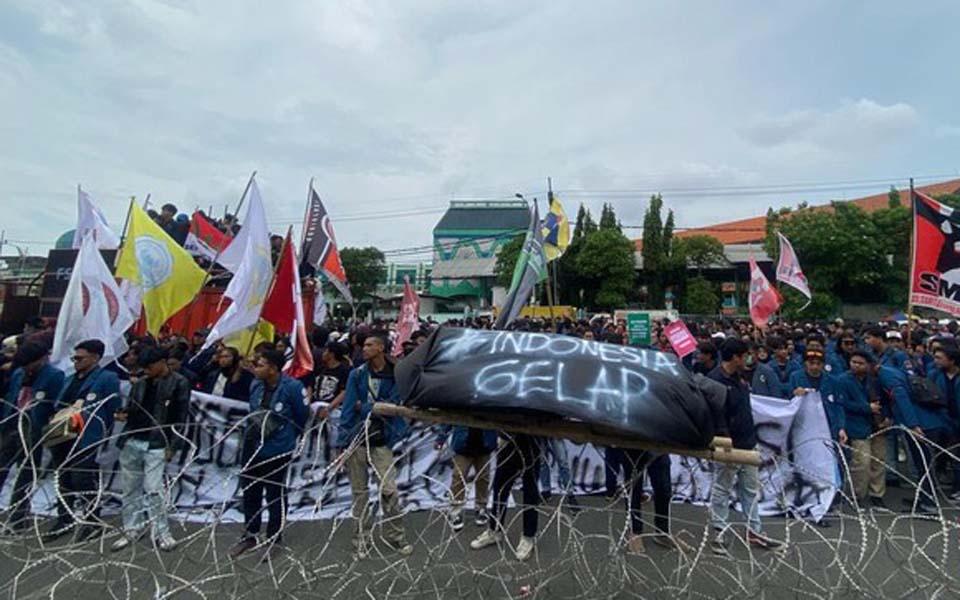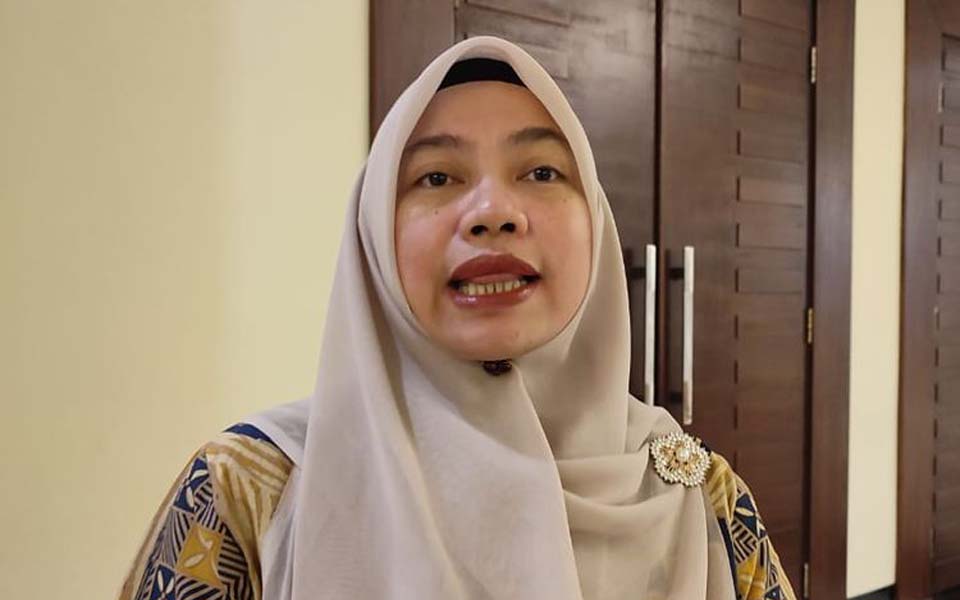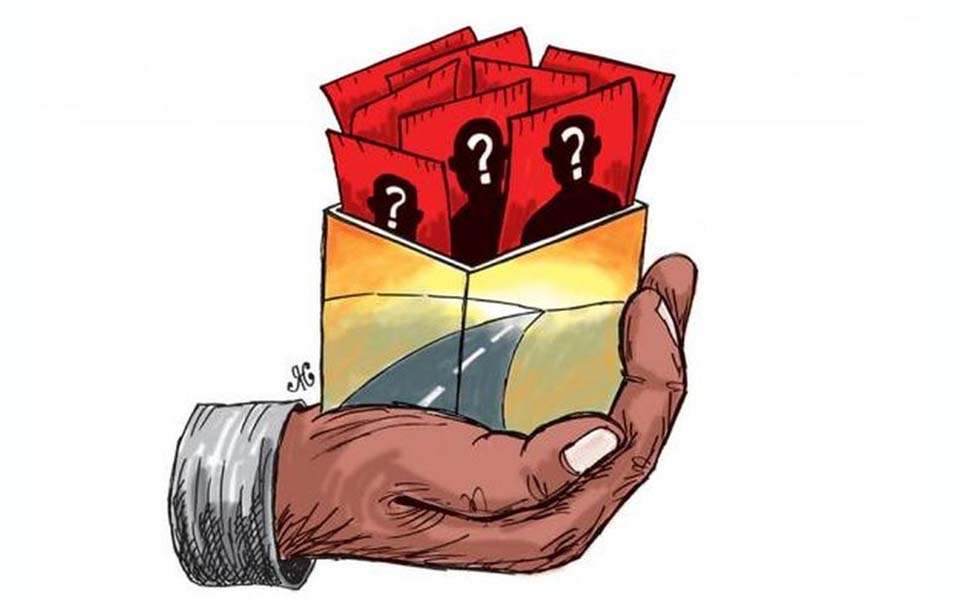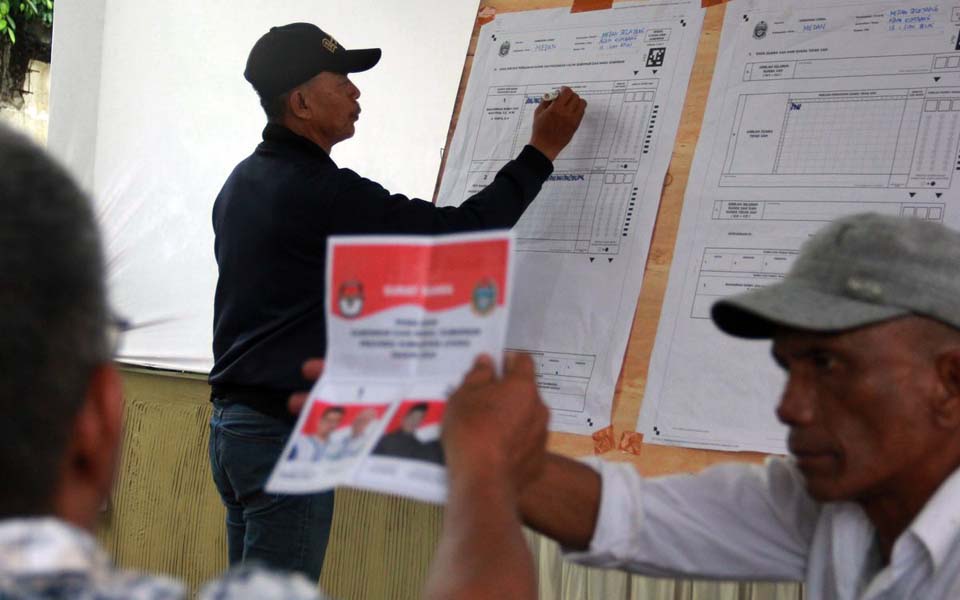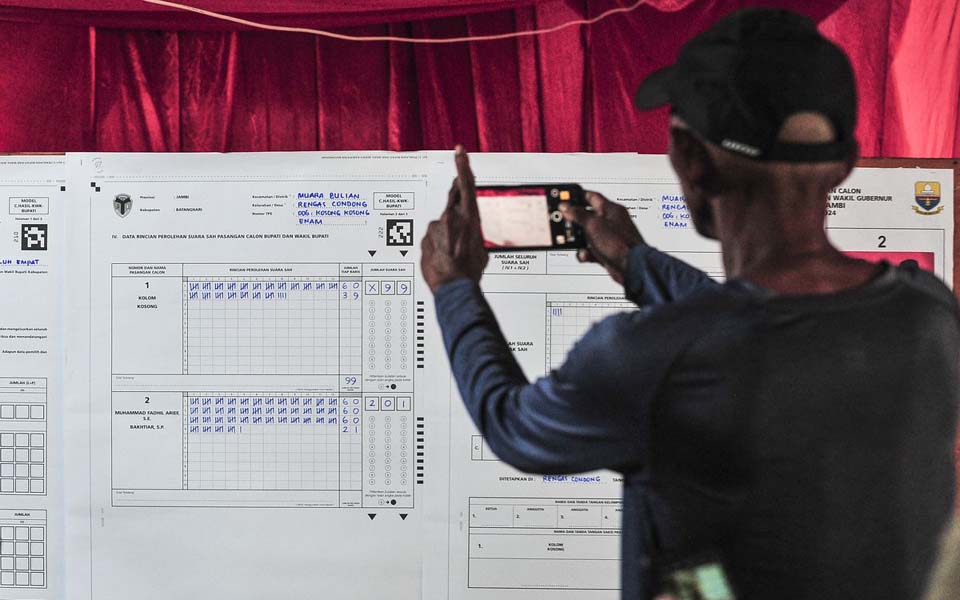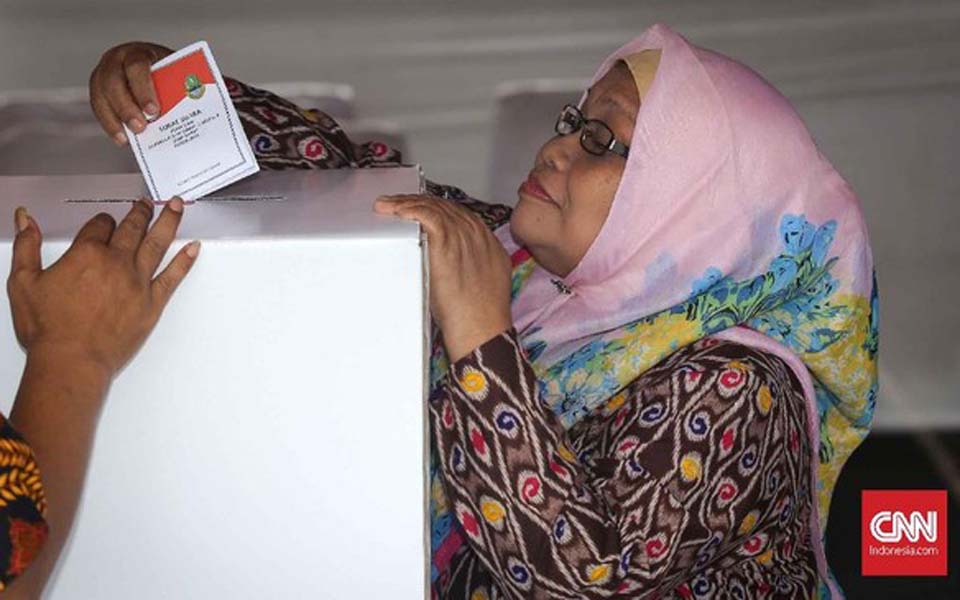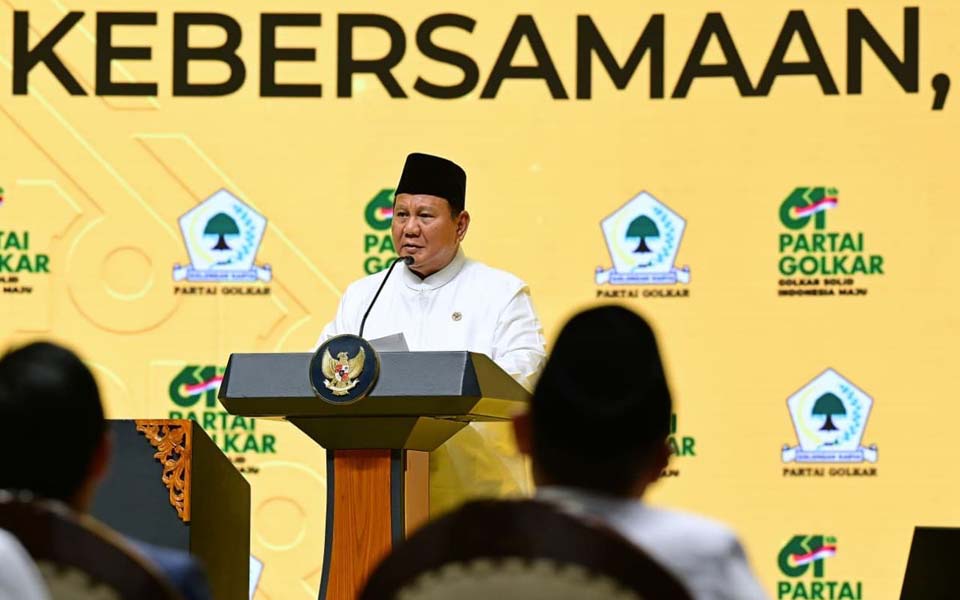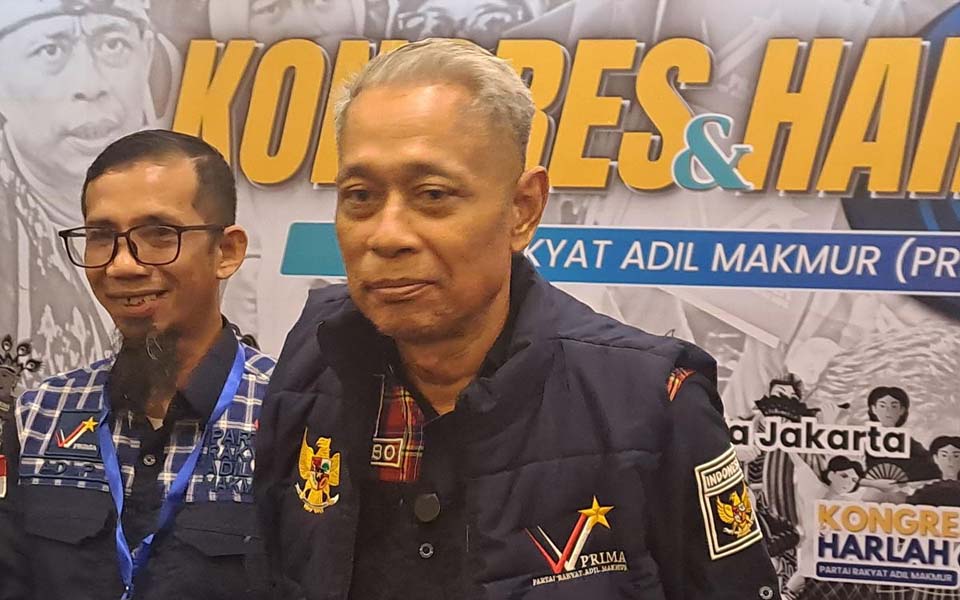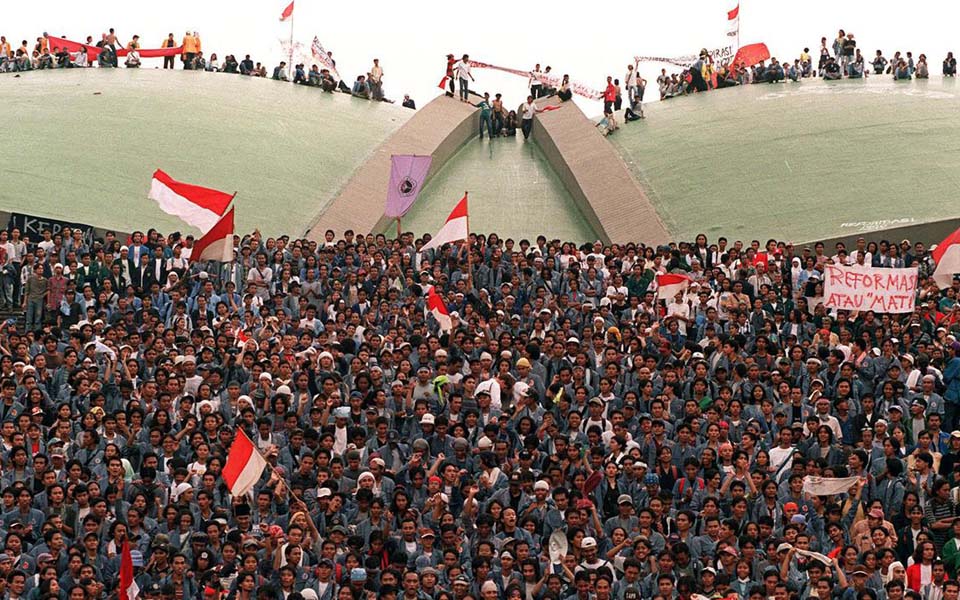Laurencius Simanjuntak – The revolutionary ideals of the People’s Democratic Party (PRD) founded 16 years ago were thwarted. The New Order regime of former President Suharto in a rage of fury obliterated the party only a few months after it was declared on July 22, 1996. PRD leaders and cadre in the regions were hunted down, abducted, tortured and jailed.
Several among them have never “returned home” to this day. They include Wiji Thukul, Petrus Bima Anugerah, Suyat and Herman Hendrawan, who were among the 13 people that were abducted by the army’s elite Special Forces Kopassus in 1997-1998. However not all the stories of former PRD activists are as grim as Wiji Thukul and his comrades.
Others among them are now enjoying the fruits of reformasi (the political reform process that began in 1998). There are those that are living well-to-do lives, that have joined other political parties, and some that have even become businesspeople. In spite of this a few of them are still active in the “underground” movement or have chosen the path of solitude.
“The PRD alumni have followed different paths in life. There are those who have become politicians, businesspeople, journalists, university lecturers, researchers at home and overseas, become village heads, become kiai (religious teachers), cultural observers and so fourth”, said Budiman Sudjatmiko, the former general chairperson of the PRD when speaking with Merdeka.com on Tuesday July 24.
Sudjatmiko, who was once jailed by the Suharto regime after being accused of being the mastermind behind the July 27, 1996 riots in Jakarta, is now pursuing a career in politics with the Indonesian Democratic Party of Struggle (PDI-P). He now sits as a member of the House of Representatives for the period 2009-2014. Sudjatmiko’s decision to join the party of the bull as the PDI-P is known, is not in fact that strange, bearing in mind that the PRD once supported Megawati Sukarnoputri, now the general chairperson of the PDI-P, as a presidential candidate to replace Suharto.
Unlike Sudjatmiko who is in the opposition camp, many ex-members of the social-democrat orientated PRD have also settled in the executive branchs of government. These include Andi Arief who is now a special presidential staff member for social affairs and disaster management. When Sudjatmiko was incarcerated in Cipinang prison, Arief was the person who held the reigns of the party. The man who used to go by the alias of Mirah Mahardika was also a victim of the 1997-1998 abductions.
There are still other ex-PRD activists in the administration, such as Dita Indah Sari and Faisol Riza. The two, both of whom were once jailed, are now special staff members to the Minister of Labour and Transmigration, a position that is not strange since both were involved in the labour movement.
Not all ex-PRD members however are active in the world of politics. Petrus Haryanto for example, is now a businessperson in the publishing industry. The former PRD secretary general now manages a small printing company. Quite different from Raharjo Waluyo Jati, who was once one of the PRD’s deputy chairpersons. Jati is now active in the tobacco farmers’ movement after previously heading up Radio VHR (Voice of Human Rights). Nezar Patria meanwhile, who was the acting PRD secretary while Haryanto was in jail, is now an executive director with the news portal VIVAnews.com.
The option chosen by Henry Kuok is perhaps been the most “desolate” among his former comrades. After completing his legal doctorate in Washington, the former PRD representative on the General Elections Commission (KPU) is now a pastor working with the poor in an urban slum in Chicago.
Sudjatmiko says that the experiences they had together struggling for democracy under Suharto’s New Order regime were very strong, because they put their lives on the line. “I’m convinced that this experience is not easy to wipe away, and if the people and history call again, they will not hesitate to again become involved in achieving the goal of freedom for Indonesia”, said Sudjatmiko.
Perhaps, he continued, the method used will not be exactly the same as before. “But with the skills, networks and ideas that they acquired in their current fields of life”, he said. “I believe that they still feel they have an obligation to complete their historical tasks.” (ian)
Notes
Following Megawati Sukarnoputri’s popular election as chairperson of the Indonesian Democratic Party (PDI) in 1996, the Suharto regime, who feared a PDI lead Megawati (who could draw upon the tremendous popularity of her father Sukarno, the founding president of Indonesia) might threaten the state party Golkar’s dominance in the upcoming 1997 elections, sponsored a rebel PDI congress in Medan, North Sumatra, and succeeded in replacing her with their own pro-regime candidate, Suryadi. Following weeks of protests and the occupation of party’s headquarters in central Jakarta by pro-Megawati PDI supporters, on July 27 paid thugs backed by the military attacked and destroyed the PDI offices resulting in the death of as many as 50 people. Popular outrage at the attack sparked several days of mass rioting and violent clashes with police which was blamed on the People’s Democratic Party, who’s members were hunted down and arrested as the masterminds behind the riots.
[Diaspora Partai Rakyat Demokratik setelah 16 tahun – Merdeka.com. Selasa, 24 Juli 2012. Translated by James Balowski.]






